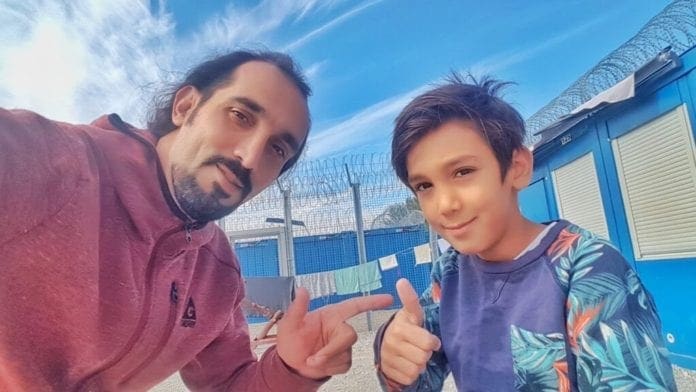
By Stefan J. Bos, Chief International Correspondent BosNewsLife reporting from Budapest, Hungary
 BUDAPEST, HUNGARY (BosNewsLife)– There is mounting concern about the plight of persecuted Christian refugees in Hungary despite government pledges to help them.
BUDAPEST, HUNGARY (BosNewsLife)– There is mounting concern about the plight of persecuted Christian refugees in Hungary despite government pledges to help them.
The U.S. funded Radio Free Europe/Radio Liberty (RFE/RL) network confirmed findings by Worthy News that many Christian asylum seekers face resistance from authorities.
Reporter György Kerényi noted that “Hungary made a promise to the persecuted” but that many remain in refugee centers uncertain about their future.
He cited activists working with refugees as saying that “being a Christian is no advantage” when it comes to receiving asylum status.
Among them is Abouzar Soltani, an Iranian Christian, and his 12-year-old-son Armin, Worthy News reported earlier. They had been living as detainees in blue container camps at the Hungarian-Serbian since late 2018 after asking asylum on political and religious ground.
FACING EXECUTION
Hungary threatened to deport Soltani back to Iran, though he could face execution there for converting from Islam to Christianity.
Authorities only moved them to a more open reception center this year after the European Court of Justice ruled in May that Budapest was obliged to reconsider their applications.
Christians among Iranian and Yazidi refugees were reportedly questioned about their faith, but even passing the test made no difference.
The findings seem at odds with several international conferences in Hungary on the plight

of persecuted Christians. In a reaction, Hungary’s state secretary for aid to persecuted Christians, Tristan Azbej, said his department helps assess the Christian refugees’ persecution claims.
But he also made clear it was his task to carry out Hungary’s foreign policy aimed at preventing most refugees and migrants from entering Europe. Prime Minister Viktor Orbán suggested to a BosNewsLife reporter in January that his government would arrange asylum for the Iranian father, his son, and other Christians.
POSITIVE RESULTS
He also claimed Hungary’s secretive diplomatic efforts had reached some positive results for persecuted Christians. “But we don’t put it to the shop window. Because you know the kind of deliberation of persecuted Christians one by one is rather a diplomatic action that requires modesty and secrecy. But be sure we are acting on that,” Orbán told BosNewsLife.
But months later, the Hungarian Helsinki Committee estimates that a significant number of Christians among hundreds of asylum are still waiting to receive asylum
The RFE/RL website story suggested there was concern among refugees and at some aid workers of criticizing the Orbán government’s tough refugee policies. Orbán has come under criticism over his perceived autocratic policies, charges he denies.
The refugee story is among the first major investigations since the RFE/RL reopened broadcasting operations in Hungary this month after nearly 30 years.
RFE/RL, known in Hungary as ‘Szabad Európa’, suggested the move was necessary amid a reported government crackdown on free media.
CRITICAL JOURNALISM
It cited a report by global monitor Freedom House as describing Hungary’s “great success in snuffing out critical journalism”. Reporters Without Borders, another advocacy group, recently ranked Hungary 87th among 180 countries surveyed.
Since leaving Hungary in 1993, RFE/RL noted that “declining media pluralism and disinformation degraded the information landscape.”
Last year, the broadcaster also relaunched operations in Bulgaria and Romania.
Like in Hungary, it played a crucial role there during the Cold War, reportedly reaching over 50 percent of adult audiences.








